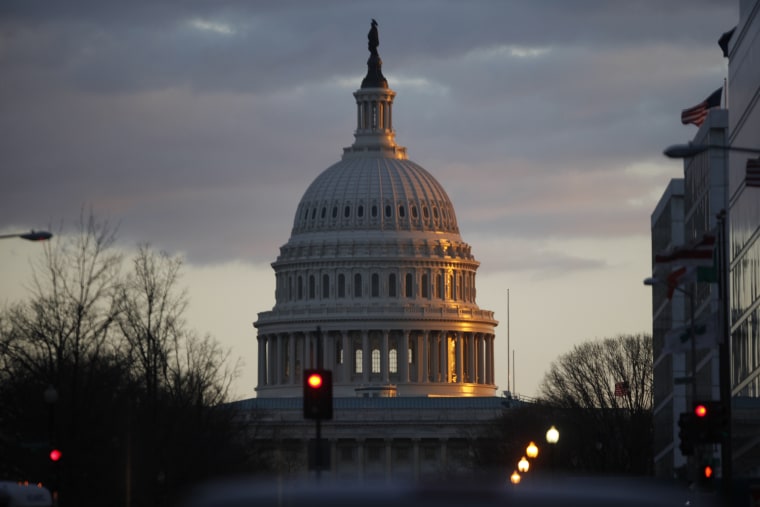If you follow politics, you have heard that the Republicans are "winning" the sequester debate. That’s the conventional wisdom in Washington and the media. But it totally misses the point.
The idea is that slashing spending has helped the GOP because so far, the cuts have not caused a major crisis and the stock market is surging.
But this all depends on how you define a crisis.
Lots of upper- and middle-class Americans own stock--and yes, their portfolios have jumped 10.1% this year. That's enough to take some people's minds off the sequester. But another 140 million Americans have no stock holdings at all--and over 12 million are unemployed. The bull market does nothing for them.
As it happens, those are the same people hit hardest by these cuts. Consider indigent seniors who are physically restricted from leaving home for food. The sequester cut funding for the government's "Senior Nutrition Programs" by 5%. That works out to a $40 million hit just to Meals on Wheels--the respected program that has delivered food to seniors for the last six decades. Or think of the people who rely on public housing in Washington. They make just $13,000 a year. That figure is so low because 40% of them are not working-age: they are children or seniors. Another 25% are disabled.
The new cuts will put some of those people out into the streets. If the sequester continues, about 125,000 public housing residents will face the same fate, according to government estimates.
Now, I get the politics here. The poor and the homeless don’t have the loudest voices in our democracy. They are–in a fundamental sense–politically invisible.
Their struggles are typically measured as merely a cost for the rest of us, not as a human or moral toll. Because of their "powerlessness," Washington only calculates their worth by proxy.
So their problems matter only when they reach a level that outrages other people--or the press.
That's a big problem because we have a distorted feedback loop. Way too many reporters have fallen for the simplistic conclusion that if the sequester didn't kneecap the entire economy after three weeks, then things “don’t look that bad”: after all, the world hasn’t come to an end.
Well, things never look that bad from the top.
They never look that bad if you ignore the poor, forget the elderly--and spend more time reporting about tours of the public housing at 1600 Pennsylvania Avenue than all the other public housing in the nation.
Which brings us back to my question: what is a crisis?
If you define it as going hungry or losing your home–this is a severe crisis. But if you define it by who faces that risk, then it's true that there is no crisis for the political and media class. There is no crisis for the upper half of the country that owns stocks and follows the market. There is no crisis in salaries for members of Congress.
The narrators have it pretty good. It's the audience that's feeling this crisis.
So the pundits may be right; there may be a political win for the Republicans here.
But the policy framework is wrong. It's misleading. It is built on a giant bubble. And as we saw in the housing and stock market give years ago, all bubbles eventually burst.
